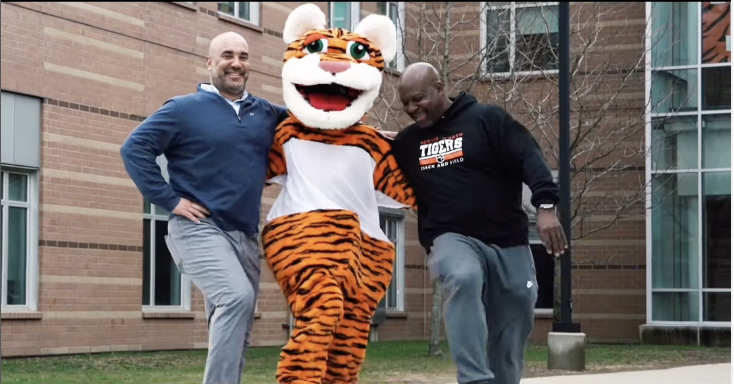The English Department chose to remove Adventures of Huckleberry Finn from its list of required readings for juniors in early October. English department head Melissa Dilworth said that the department “is not removing this title from the book list but no longer requiring it as a core work,” and English teachers may still choose to teach the text in their junior classes.
Dilworth added that while the text has worked to address a variety of societal problems, such as race, class, and religion, “Huck Finn has collapsed under the weight of all of the issues it has tried to address.”
Adventures of Huckleberry Finn, written by Mark Twain, portrays Huck, a white child from the South, and his adventures down the Mississippi River with Jim, a runaway slave. The text follows Huck and Jim’s struggles to break free from the constraints their society places on each of them and their ultimate failure to do so. The book is one of the only texts for juniors required by the English department that is set in this historical time period.
According to English teacher Peter Goddard, Huck Finn is especially problematic due to the way in which it discusses race. He said that “the decision of whether or not to keep Huck Finn as a core text has been a growing issue” for several years, and the text has raised important questions about “how to talk about race and slavery in a way that does not put an unfair burden on black students.”
Senior Zoë Kronberg, a member of Dover Legacy Scholars (DLS), said that the language of the text made it particularly challenging to read, and “the use of the n-word was not a productive way to talk about race.” DLS is an academic community of black and Latinx students at North.
“Based on the context that I was taught the book in, the whole preface of the book was not to talk about race but rather to talk about some literary devices within the book,” she said. “I thought reading Huck Finn was a painful experience. For me, it was very uncomfortable because the n-word is just very ingrained in my history and culture.”
While the text presents a window into post-Civil War society, certain aspects of the plot, especially the language, are particularly jarring for students, according to senior Douglas Williams, another member of DLS. “The text does a good job of pushing people to explore difficult and topical issues, but it falls short when the extremities of the scenarios in the book are not represented in the real world today,” he said. “It’s especially awkward when you’re reading the n-word over and over again in a large classroom setting.”
“Huck Finn makes an important point about racism, but it’s a limited point,” said senior Margaret Needham, a white student. “We had a combined class with our history teacher to learn about the different aspects of society at the time, and it was very helpful to better understand the language and the messages of the text.”
However, understanding the history behind the text can be painful for some, according to Needham.
“While it is important to reconcile with the history of racism, if it makes people feel uncomfortable to read a challenging text about race, then the literary benefit of reading the text does not outweigh feeling unsafe,” she added.
According to English teacher Adam George, the repeated use of the n-word is especially problematic for students. “I don’t think any of us teachers want to subject students to that extra painful and uncomfortable and unsafe mindset to dive back into this text where this word is used all the time,” he said. “There’s so much else we want to focus on and we want our students to focus on.”
Dilworth said, “Ultimately, the question we’re asking is, ‘Is it really worth it?’” She added that “there are many other less problematic texts that can address complex issues.”
According to Goddard, however, there are several reasons to reconsider Huck Finn’s importance in English classrooms.
“Removing Huck Finn from the core text list does not solve the problem because the problems of how we handle [discussions about race] in the classroom are going to be there no matter what text we have.”
He added that the text provides valuable insight into its time period, and the decision to remove the text needs more careful consideration. “I feel like we made this decision a little quickly,” he said. “No text can do what Huck Finn does because it’s so far-reaching.”
The final decision to remove the text from the required readings list came after a comprehensive discussion during department meetings, according to George. “Various students had presented some concerns about the text, and some colleagues had also had similar concerns,” he said. “We held department meetings to look over the feedback and break out into small groups and discuss what we heard and also how we feel about the text.”
Dilworth said that revising literature requirements will provide an opportunity for the department to consider new texts that promise to promote productive discussions in class.
“Breaking free from the confines of the traditional canon is essential to reflect the diverse experiences that our students bring to Newton North,” she said. “We’re trying to use literature as both windows that students can see the world outside of our own, and also mirrors where they’re reflected.”










































